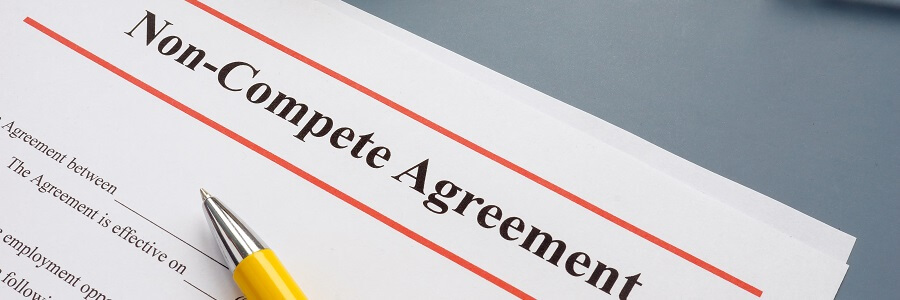Have You Reviewed Your I-9 Compliance?

Quick Look: In 2020, the U.S. Department of Homeland Security (DHS) relaxed some of its compliance requirements for Form I-9 Employment Eligibility Verification because of the COVID-19 pandemic. However, the DHS recently announced that it will tighten up its rules once again beginning October 31, 2022. Employers must get ready to update their I-9 Forms in accordance with the DHS and should look to the compliance experts at their PEO partner for assistance.
The swift onset of the COVID-19 pandemic in March 2020 changed workplaces immediately. Physical office spaces were closed, living rooms and kitchens suddenly became home offices and classrooms, and policies and practices were modified to accommodate a new way of working. One such change was the rule for Form 1-9, Employment Eligibility Verification documents.
Form I-9 is used to verify the identity and employment authorization of individuals hired in the United States. All U.S. employers must complete Form I-9 for each hire. Employees must also present his or her employer with acceptable documents proving their identity and employment authorization.
Prior to 2020, it was required that these documents were presented in-person in order for an employer to “examine the employment eligibility and identity document(s) an employee presents to determine whether the document(s) reasonably appear to be genuine and to relate to the employee and record the document information on the Form I-9.”
But because of COVID-19 stay-at-home orders, the ability to now hire remote workers in different parts of the country, and the difficulties many individuals experienced with renewing identity documents, the U.S. Department of Homeland Security (DHS) relaxed some of these rules with its COVID-19 Temporary Policy for List B Identity Documents. Typically, employees must provide non-expired List A, List B, List C, or a combination of documents that show identity and employment authorization. Under this new policy, the DHS allowed employees to present their identification documents virtually rather than in person and use expired verification and List B documents.
Then earlier this year, the DHS announced it would be ending the temporary policy beginning April 30, 2022. However, due to the continued safety precautions related to COVID-19, that date has been extended until October 31, 2022. After this time, employers will no longer be able to accept expired List B documents. Here, we’ll look at what was required prior to 2020, what’s changing for 2022, eligible documents, and how employers should leverage the compliance experts at a professional employer organization (PEO).
I-9 requirements
Before 2020, an employee was required to complete Section 1 of the I-9 on his or her first day of work. For section 2, the employee presented the required documentation within three business days of employment in the presence of their employer or authorized representative. Section 3 is only required if an employee is rehired within three years of their original I-9 form completion or has a legal name change.
These are what we referred to above as List A, List B, and List C documentation and may include:
List A documents: U.S. Passport, U.S. Passport Card, Permanent Resident Card or Alien Registration Receipt Card, foreign passport with Form I-94 or Form I-94A with arrival-departure record and containing an endorsement to work.
- If a List A document is presented, no other List B or List C documents are necessary.
List B documents: ID card issued by a federal, state, or local government agency containing a photograph and information such as name, birthday, gender, and address, school ID card with a photograph, voter registration card.
List C documents: U.S. Social Security card, original or certified copy of birth certificate, Form FS-240 Consular Report of Birth Abroad, Form I-197, U.S. Citizen ID card.
- The documents in List C only establish employment authorization. This means employees who choose to present a List C document must also provide a document from List B.
What’s changing for 2022?
DHS is updating its requirements for employers who accepted expired List B documents throughout the pandemic. I-9 compliance flexibilities will end on October 31, 2022.
According to DHS:
- Employers who accepted expired List B documents between May 1, 2020 and April 30, 2022 must request a new document that verifies the employee’s identity if the original document provided expired on or after March 1, 2020
- Employers do not need to take further action if the List B documents they used for identity verification were unexpired as of March 1, 2020
- If the employee who presented an expired List B document is still employed, he or she must provide an unexpired identification document
- No action is necessary if the employee is no longer employed by the company
- No action is necessary if a List B document was auto extended by the issuing authority
Additionally, DHS has employers to continue reviewing documents remotely through November 1, 2022. While remote work continues to play an important role in the workplace, many employers have requested a permanent virtual verification policy. And they may just get their wish.
Virtual I-9 documentation review
According to a proposed rule issued by Immigration and Customs Enforcement (ICE) on August 18, 2022, employers could have more options when examining I-9 documents presented by new hires. One of those options could be the permanent ability to review I-9 documents remotely.
The agency states that advances in technology and new work arrangements allows it to explore “alternative options, including making permanent some of the current COVID-19 pandemic-related flexibilities to examine employees’ identity and employment authorization documents for the Form I-9.” This proposed rule doesn’t create new flexibilities like permanent remote review, but rather allows the government to “extend flexibilities, provide alternative options, or conduct a pilot program to further evaluate an alternative procedure option for some or all employers.”
However, a virtual policy is no guarantee. Companies that still have employees who have not returned to the office, or are in permanent remote roles, may consider using an authorized third party, such as a notary or an attorney, to complete the I-9 verification process.
Avoiding compliance pitfalls with a PEO
As many workplaces have returned to some form of hybrid work, employers who took advantage of the remote verification flexibility should begin reviewing their policies accordingly. Carefully evaluate new hires over this period to determine whether updated identification or I-9 forms are needed. Employers who have accepted expired List B documents should get ready to update their I-9 forms in accordance with the DHS instructions.
Small- and- medium-sized businesses (SMBs) should seek guidance from their legal counsel or the compliance experts at their PEO company if they are unsure of how to prepare. The professionals at a PEO can help create a compliant I-9 verification process to avoid liability or costly penalties. In fact, the DHS recently increased the I-9 fine levels for paperwork violations. As of January 11, 2022, the fine range is now $252 to $2,507 per Form I-9. Now is the time for employers to leverage a PEO partner to strengthen compliance protection.
Compliance experts at a PEO can also work with an SMB to revise company policies, update related employment documentation, assist with questions or concerns, and make recommendations for how to manage an efficient I-9 process.
Looking ahead
Modern HR compliance grows more demanding and complex each day. Be sure to leverage the experts at your PEO company to review any upcoming local, state, or federal laws and take the necessary steps to comply. Doing so will help you avoid any penalties for non-compliance associated with new mandates or legislations.
Although you can never eliminate the risks of running a business, you can always take steps to reduce your exposure. Our compliance experts are here to help.



